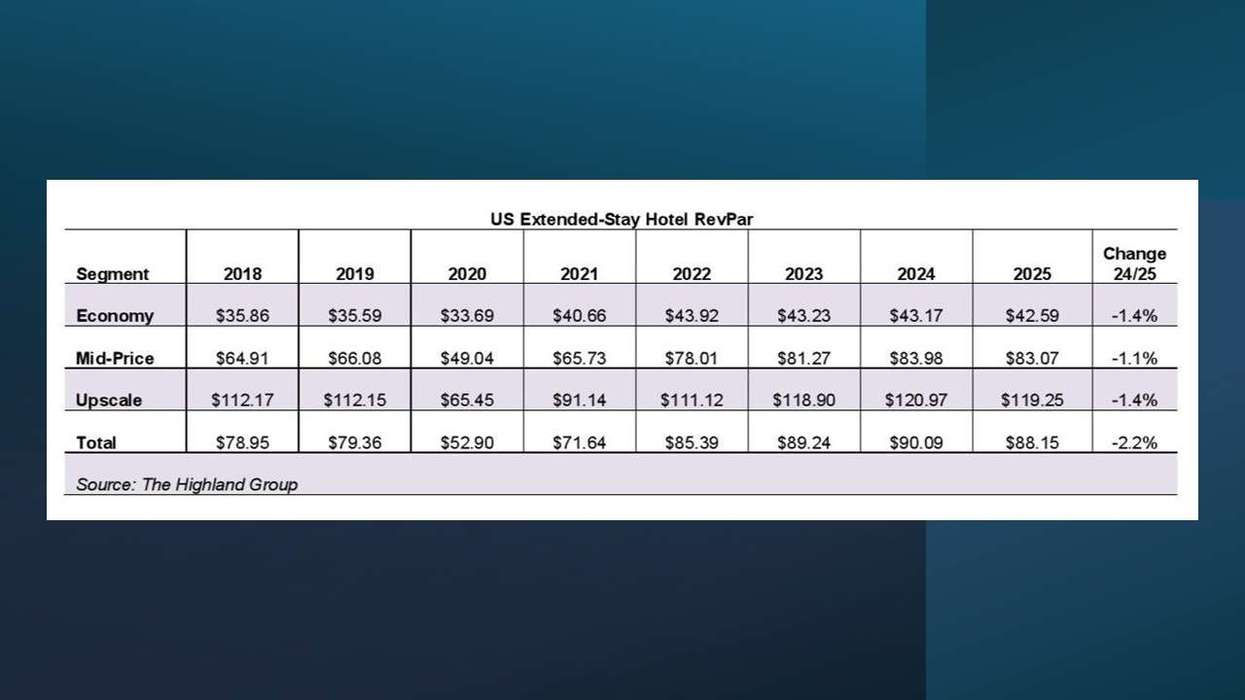AS THE U.S. hotel industry moves into the holiday season, performance continues to lag with weekly declines in occupancy, according to STR. At the same time, short-term rentals in three markets are outperforming hotels.
Occupancy in the week ending Nov. 21 averaged 41.2 percent, down from 43.2 percent the week before and a 32.6 percent decline from the same period last year. It was part of an ongoing weekly slide in occupancy rates.
“The last three weeks have produced occupancy levels of 43.2 percent, 44.4 percent and 44.1 percent,” STR said.
ADR for the week was $88.54 compared to $90.58 the previous week and down 29 percent year-over-year. RevPAR was $36.45 versus $39.11 the previous week, also down 52.2 percent from last year.
STR’s pilot program for reporting and benchmarking short-term rental results in Philadelphia, Nashville and Miami found that in October those units outperformed hotels in those markets. That was consistent with a whitepaper released in August by STR and AirDNA that found short-term apartment rentals are recovering faster from the COVID-19 economic downturn.
Results of STR’s short-term rental sample of multifamily and single-family short-term rentals are as follows.
Philadelphia: Short-term rental occupancy was 70.9 percent, up 26.4 percent over the previous month. Hotels in the market recorded 49.2 percent occupancy for the month. ADR for short-term rentals was $169.97, a 5.3 percent increase by month, and RevPAR was $120.51, up 33 percent from September.
Nashville: Short-term rental occupancy was 58.6 percent, down 2.5 percent from the previous month. “Although down month over month, Nashville’s short-term rental occupancy came in well above hotel occupancy in the market, which was up 13.1 percent to 44.1 percent,” STR said. Short-term rental ADR was $133.08, up 24.3 percent monthly, and RevPAR was $78.05, a 21.2 percent monthly increase
Miami: Short-term rental occupancy was 83.3 percent, better than the 41.6 percent seen by hotels in the market and up 2.1 percent from September. ADR for short-term rentals came in at $117.89, up 12.9 percent, and RevPAR reached $98.24, a 15.3 percent increase over the previous month.
Also, in the week ending Nov. 21, STR’s top 25 markets together had lower occupancy than other markets, 37.8 percent, but higher ADR at $94.21. Tampa/St. Petersburg, Florida, saw 50.4 percent, making it the only major market to exceed 50 percent.
Markets with the lowest occupancy levels for the week were Oahu Island, Hawaii, with 22.9 percent and Chicago with 26.6 percent.





